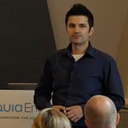The 1960s, a decade of change and upheaval. It was a time when the world was shifting on its axis, and the movies reflected that turmoil. Now, I know what you're thinking - what about those films that really captured the essence of the 1960s? Well, let me tell you, my friend, there were some real gems that didn't get the recognition they deserved. Here are three movies from that era that, in my humble opinion, were even more telling of their time:
𝗧𝗵𝗲 𝗠𝗮𝗻𝗰𝗵𝘂𝗿𝗶𝗮𝗻 𝗖𝗮𝗻𝗱𝗶𝗱𝗮𝘁𝗲 (𝟭𝟵𝟲𝟮) - This psychological thriller, directed by John Frankenheimer, delved into the dark world of brainwashing and political manipulation. It was a film that tapped into the fears of the Cold War, when the threat of communism loomed large over America. The movie's exploration of mind control and the blurring of reality was a commentary on the paranoia that gripped the nation.
𝗧𝗵𝗲 𝗔𝗽𝗮𝗿𝘁𝗺𝗲𝗻𝘁 (𝟭𝟵𝟲𝟬) - Billy Wilder's classic romantic comedy starred Jack Lemmon and Shirley MacLaine in a tale of corporate drudgery and the search for human connection. This film was a scathing critique of the dehumanizing effects of modern capitalism, where people were reduced to mere cogs in a machine. It was a commentary on the emptiness of the American Dream, where success was measured by the size of one's office and the number of secretaries one could bed.
𝗧𝗵𝗲 𝗠𝗮𝗻 𝗪𝗵𝗼 𝗦𝗵𝗼𝘁 𝗟𝗶𝗯𝗲𝗿𝘁𝘆 𝗩𝗮𝗹𝗮𝗻𝗰𝗲 (𝟭𝟵𝟲𝟮) - John Ford's Western classic starred John Wayne and Jimmy Stewart in a tale of law and order in the Wild West. But beneath its surface, the film was a commentary on the changing times, where the old certainties were crumbling and the new world was emerging. It was a movie about the struggle for power, the corrupting influence of authority, and the fragility of justice.
These films, my friend, were more than just entertainment. They were reflections of the anxieties, fears, and hopes of a nation in flux. They were the signs of the times, and they still resonate today.
And so, as I sit here, reminiscing about the movies of my youth, I am left with a question: Were these films a reflection of reality, or did they shape our perception of reality? Perhaps it's both. Perhaps, in the end, it doesn't matter. What matters is that they continue to speak to us, to challenge us, and to make us think.
And that, my friend, is the true power of cinema.
(And who knows, maybe it's all just satire. Maybe I'm just an old man yelling at the clouds. But what if I'm not?)
